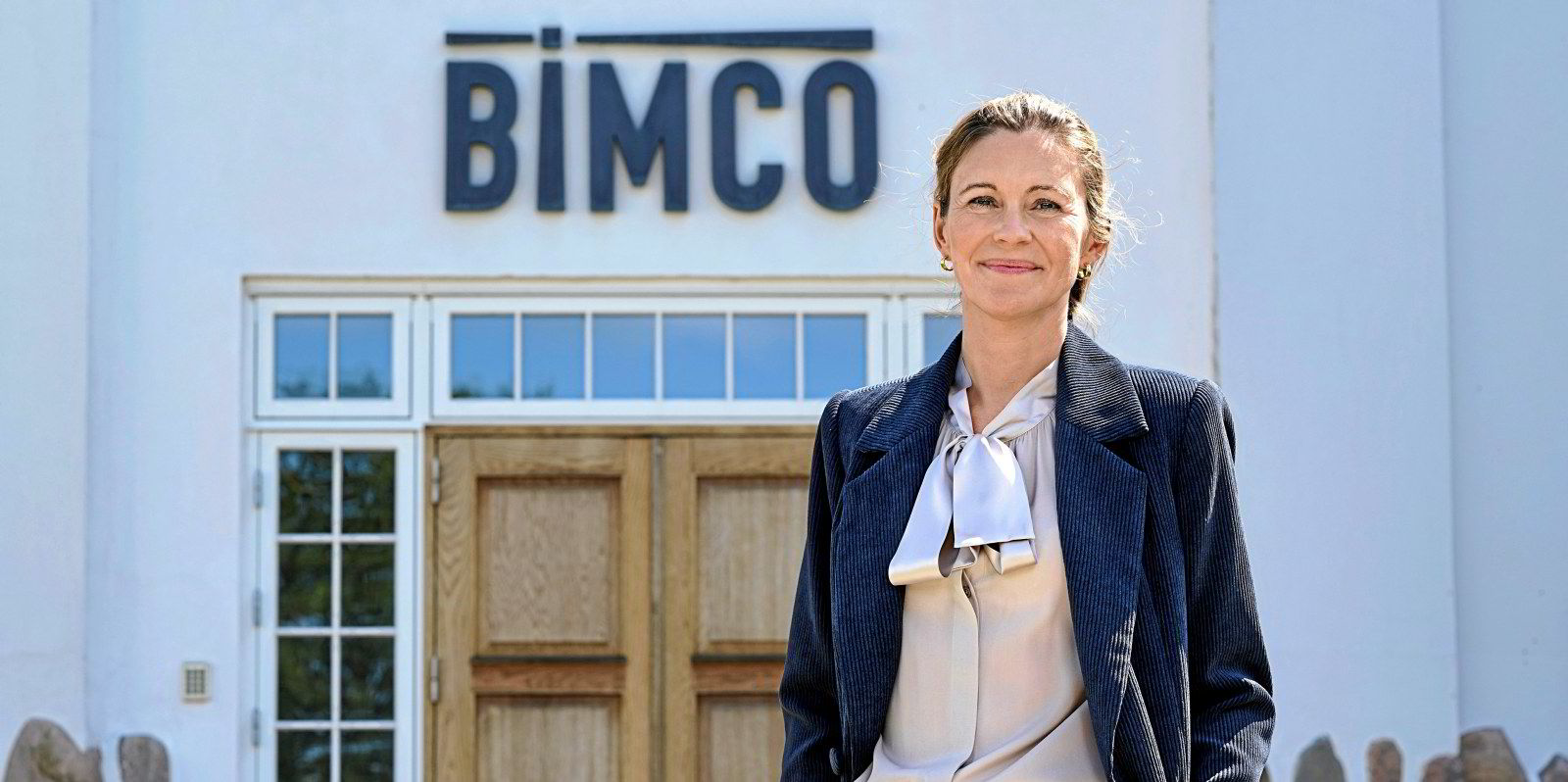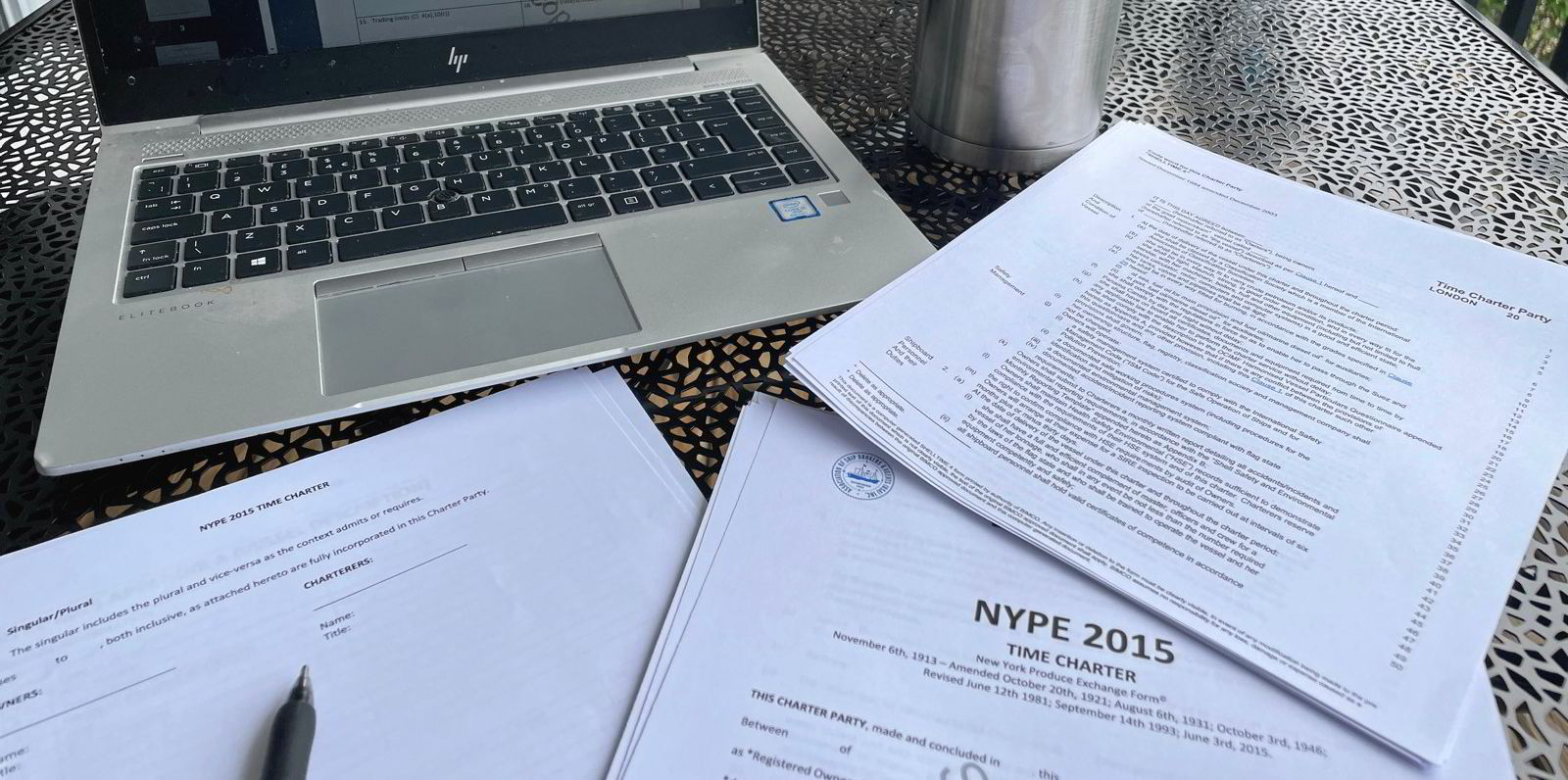BRS Shipbrokers is offering clients its own detailed contract clause for time-charter deals as a way for vessel owners and charterers to clear up responsibilities in the looming European Union Emission Trading System.
The move by the carbon desk at the Paris-headquartered broking house comes as an alternative to a contract clause by Bimco published a year ago, as the shipping association prepares to finalise clauses for additional forms of clauses.
Entering EU emissions trading has a number of contractual implications for shipping, particularly when it comes to time-charter deals.

While the polluter pays principle makes a ship’s charterer or commercial operator responsible for paying for carbon credits, known as EU Allowances, or EUAs, it is often the shipowner or manager that has to acquire them and turn them into the European bureaucracy.
Mattia Ferracchiato, a veteran of EUAs who is the head of carbon markets for BRS, said his firm’s clause aims to address important practicalities not covered by that of Bimco.
And he said the two-page document, developed in-house, is the only one created by a shipbroker and carbon player.
Ferracchiato pointed out that the nearly 600-word Bimco clause says the charterer should “provide and pay” for allowances, without saying how they should pay up and how the price is determined.
“What type of price are you going to put in the invoice — the closing price of the carbon market yesterday, last Friday’s closing price, the 2023 closing price [at the end of] December?” he asked. “What do we put on the invoice?”

BRS answers that question by specifying the price to be paid is the previous day’s settlement price on the EUAs market.
Ferracchiato said charterers will not be comfortable with a lack of clarity on how the price is determined.
The broker’s clause also takes into account that some shipping companies will hit roadblocks in opening an account with an EU registry to hold their allowances.
The Bimco clause assumes monthly transfers of allowances from charterers to shipowners, but Ferracchiato said some players will want quarterly or even annual transfers of allowances.
“That’s why people think that probably the clause is too owner-friendly,” he said of the Bimco provision. “Because they don’t give any chance for the charterer to pass on the cost at the end of the year.”
The veteran carbon trader added that the Bimco clause does not use the terminology of the EUAs market.
“Let’s not forget that shipping is going to be included in an existing market,” Ferracchiato said. “We should not create additional vocabulary when we already have the proper wording to describe things.”

Stinne Taiger Ivo, director of contracts and support at Bimco, told TradeWinds that the organisation understands some in shipping are using its time-charter clause, while others are using it in amended form, including adopting a different time frame for transferring the allowances.
“Although the picture of ETS is becoming clearer, uncertainties still exist, and we are yet to see further guidance from the EU,” she said.
“Also, the practicalities around the EU ETS accounts, for surrendering and transferring of emission allowances between parties, are not straightforward.”
Meanwhile, Bimco is working to develop clauses for voyage charterparties, with three different standard clauses expected to be published later in the year, as the organisation’s documentary committee continues to review the option.
The group is also working on a clause for ship management contracts that allows shipowners and managers to agree on how to handle emissions trading in a way that allows commercial flexibility.
And on clauses for contracts of affreightment, she said Bimco will consider other contracts down the line.
Agreeing on clear terms is key as shipping enters emissions trading because the EU’s directive includes provisions that allow shipping organisations to seek reimbursement from the company responsible for the purchase of the fuel, the operation of the vessel or both.
“This means that without any clause agreed in the charterparty, the time charterer or the voyage charterer may be exposed to a reimbursement claim by the shipping company depending on how member states will transpose the text in the EU ETS directive into national law,” Ivo said.
“A way to reduce litigation risks is, therefore, for the parties to agree on, from the outset, how ETS is to be handled in the charterparties.”
Read more
- Green Seas: Climate change reverberates through shipping amid Panama Canal and liner woes
- Podcast: Meet the tech companies that are tackling wasted time, and emissions, in port
- Green Seas: As right whales face extinction, ships are flouting speed rules that protect them
- Eneti scores contract for wind vessel newbuilding as ‘market fundamentals remain strong’
- Podcast: The future of ship recycling after the Hong Kong Convention
- Ports seen as ‘key node’ in UK’s cross-sector efforts to decarbonise freight transport




